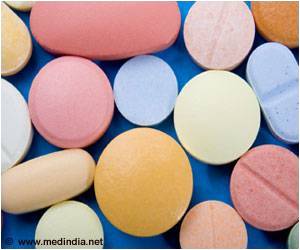New research has found that fructose, the sugar often blamed for the obesity epidemic, does not itself have any impact on an emerging marker for the risk of cardiovascular disease known as postprandial triglycerides.

Dr. Sievenpiper conducted a meta-analysis of existing studies on fructose and its impact on the level of triglycerides, a fat found in blood, after eating. Testing for these triglycerides—in addition to the standard testing for blood glucose levels—is becoming more common for people trying to determine their risk for cardiovascular disease, although health care professionals remain divided on its usefulness.Dr. Sievenpiper's results appear in the January 2014 issue of the journal Atheroclerosis. "Fructose doesn't behave any differently than other refined carbohydrates," he said. "The increases you see are when fructose provides extra calories.
Source-Eurekalert












